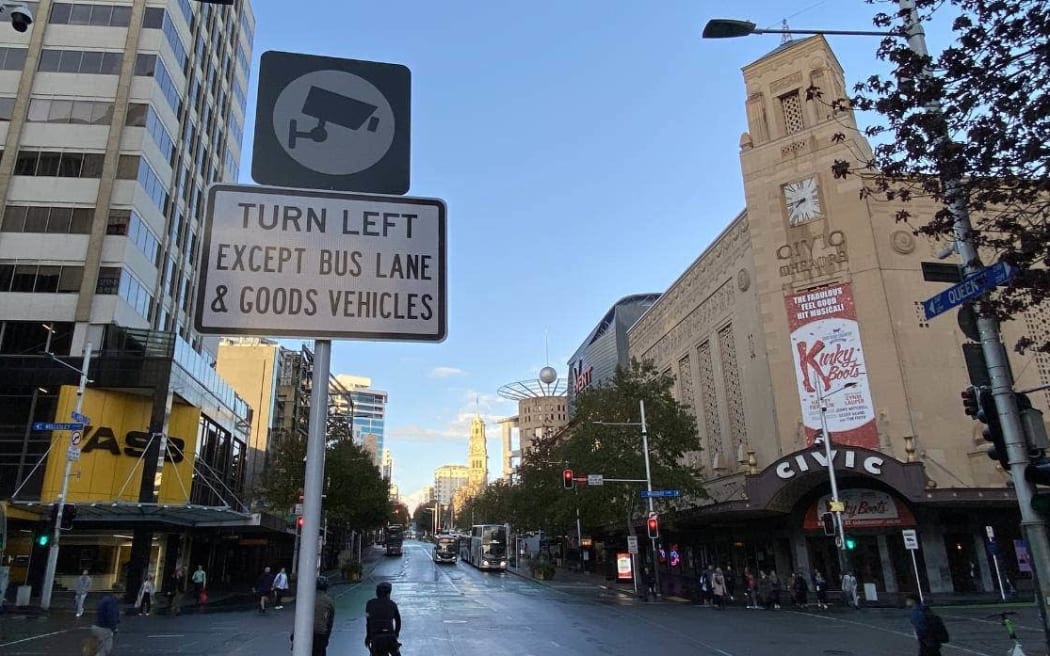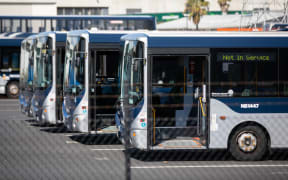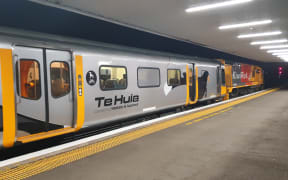
Congestion charges on key Auckland roads could be introduced by early 2026. Photo: Stuff / Erin Johnson
Auckland Transport will look at sharing technology with Waka Kotahi to cut the costs of setting up the city's congestion charging scheme.
It aims to use cameras to snap number plates to charge for using strategic roads from possibly early 2026.
"We want to crack on with the conversations now ... to see if there is a opportunity to jump on the back of their ... vendor," AT executive general manager of integrated networks Mark Lambert said.
Questions remain, such as which roads will incur a charge, how many cameras will be needed and how the charge will vary during peak times.
Lambert said they did not know what it would cost to set up, but it would not eat into funding to build more public transport infrastructure.
"There's certainly no forecast or intent to reduce capital investment on public transport as a result of any congestion scheme," he said.
AT documents stated there must be good public transport as an alternative to charged routes.
The two types of funding were in different pots, Lambert said.
The bill for advice was already growing. Consultancy PWC wrote a pre-implementation report last December, and AT was running a tender to hire another advisory firm that closed next Monday
"The work programme needs to be delivered at pace; builds on existing work while confirming previous key assumptions around congestion and travel patterns, and progressing analysis of forecast congestion and travel patterns," the tender document said.
That previous work, in 2020, assessed five options and favoured two of them; a city centre cordon and "strategic corridors".
The former was estimated to cost $46m to set up, $10m to operate a year and raise $21m in revenue. The latter was predicted to be $185m to set up, $84m to run and to bring in $205m a year in revenue.
The costs for "time-of-use" charging could be reined in by using some of AT's own existing cameras, or off-the-shelf technology, Lambert said.
"What exists in the marketplace that we could purchase easily or use relatively easily to keep costs down ... as opposed to reinventing the wheel."
Another option was sharing the new cameras and back-office technology at NZTA.
Its projects to bring in new speed-safety cameras and tolling technology together are costing more than $180m.
AT expected to start talks soon with the Transport Agency "to work with them to reduce costs".
However, these talks are coming a year or two after Waka Kotahi signed up major overseas tech firms.
AT had not left it too late to discuss what it might share with NZTA, Lambert said. "We've only just been asked to start looking at this at the end of last year from the council, and the legislation isn't even in place yet for congestion charging."
Any cameras must have automated number plate recognition (ANPR); some existing AT cameras could run ANPR, but others not.
The design for a new system was months away.
This would determine if the scheme could also be used for "distance charging", which varied the fee according to how far a motorist travelled.
However, Lambert ruled that out, at least initially.
"Any technology we will be looking at, we'll make sure that it can be future-proofed for enhancements to that, but we don't want to spend a load of money now on something that's actually is probably quite a few years away, if at all."
The start date for congestion charging has been pushed back to early 2026, though that was "likely to be optimistic given the complexity of the deployment required", the PWC report said.
Legislation to enable such charges was expected to be passed in coming months.
"I think we're pretty confident that once we've gone through the legislative process, we've done our policy work, we've got an investment case in place, funding will be available," Lambert said.
NZTA's camera and tolling projects are running behind schedule.






